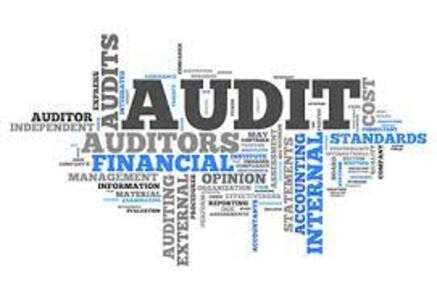#statutory audit
Explore tagged Tumblr posts
Text
Statutory Audits Simplified with Cloud Technology
Gone are the days of paper-intensive audits. Cloud technology has revolutionized statutory audit services by enabling remote access, real-time collaboration, and secure data storage. At Alliance Chartered Accountants, we embrace cloud solutions to deliver audits that are efficient and flexible.
Whether you\u2019re a small business or a multinational, our cloud-based approach ensures seamless audit processes tailored to your needs. Connect with us to experience the future of audits.
Let me know if you'd like any adjustments!
0 notes
Text
A Beginner’s Guide to Statutory Audits: Processes and Best Practices
Statutory audits are a cornerstone of financial transparency and compliance. If you’re new to the concept, this guide will help you understand statutory audits' meaning, applicability, and best practices, ensuring clarity and confidence in managing them.
What is a Statutory Audit?
A statutory audit is a legally mandated review of a company’s financial records to ensure accuracy and compliance with applicable laws and regulations. It evaluates whether the financial statements provide a true and fair view of the company’s financial position.
Key Features of a Statutory Audit:
Mandatory: Required under various laws, such as India's Companies Act, 2013.
Scope: Focused on examining financial statements, internal controls, and compliance with regulatory standards.
Conducted By: Independent auditors, registered with a regulatory authority.
Statutory Audit Applicability
Statutory audits apply to a variety of entities, depending on the country’s laws and the type of organization. In India, statutory audit applicability primarily revolves around the Companies Act and other regulatory frameworks.
Who Needs a Statutory Audit in India?
Companies: All companies, including private limited, public limited, and foreign companies operating in India, must undergo a statutory audit annually.
Partnership Firms: Firms with turnover exceeding specified thresholds under the Income Tax Act are also subject to audit.
Banks and NBFCs: Financial institutions like banks and non-banking financial companies are mandated to have statutory audits under RBI guidelines.
Trusts and Societies: Entities registered under certain acts, like charitable trusts, are required to conduct statutory audits to ensure transparency.
Taxpayers: Businesses or professionals exceeding the prescribed turnover under Section 44AB of the Income Tax Act must conduct a statutory audit.
Processes in a Statutory Audit
The statutory audit process involves a systematic review of an organization’s financial records and compliance. Here’s how it typically unfolds:
1. Appointment of Auditor
The first step is appointing an independent auditor, approved by the board of directors or shareholders.
2. Planning and Risk Assessment
Auditors outline the scope of the audit, identify high-risk areas, and design procedures to address them.
3. Examination of Records
The auditor examines books of accounts, financial statements, supporting documents, and internal control systems.
4. Compliance Review
Ensures adherence to regulatory frameworks like the Companies Act, Income Tax Act, and accounting standards (Ind AS or IFRS).
5. Reporting
The auditor prepares a report highlighting whether the financial statements provide a true and fair view of the company’s financial position. Any discrepancies, qualifications, or suggestions are documented.
Best Practices for a Successful Statutory Audit
To ensure a smooth statutory audit process, both the organization and the auditor must follow certain best practices:
1. Maintain Proper Documentation
Keep financial records, invoices, contracts, and tax filings well-organized.
Regularly reconcile accounts and update books of accounts.
2. Conduct Internal Audits
Regular internal audits can help identify discrepancies early and prepare for the statutory audit.
3. Communicate with the Auditor
Ensure open communication to address queries and provide necessary documents promptly.
4. Stay Updated on Laws
Keep track of changes in tax laws, accounting standards, and regulatory requirements.
5. Use Technology
Leverage accounting software to maintain accurate records and generate audit-friendly reports.
6. Focus on Internal Controls
Implement and regularly review internal controls to minimize the risk of errors or fraud.
Why is a Statutory Audit Important?
A statutory audit ensures that financial statements are accurate and compliant with regulations. Here’s why it’s essential:
Stakeholder Confidence:
Builds trust among investors, shareholders, and creditors by providing reliable financial information.
Regulatory Compliance:
Ensures adherence to legal requirements, reducing the risk of penalties or legal action.
Fraud Prevention:
Identifies irregularities, ensuring better governance and accountability.
Improved Decision-Making:
Accurate financial statements help management make informed decisions.
Common Challenges in Statutory Audits
Incomplete Records:
Inadequate documentation can delay audits. Regular bookkeeping can help avoid this issue.
Tight Deadlines:
Ensure timely completion of accounts to avoid rushed audits.
Compliance Gaps:
Engage professionals to review compliance and address gaps regularly.
Conclusion
A statutory audit is more than a compliance requirement—it’s a means to ensure transparency, build trust, and maintain financial discipline. By understanding the meaning of statutory audit, its applicability, and the processes involved, businesses can better prepare and benefit from the audit process.
If you’re looking for expert guidance and practical learning explore Statutory Audit Courses with practical insights to improve your knowledge.
0 notes
Text
https://aparajitha.com/

HR Statutory compliance services in India: Essential for every business
Complying with all applicable labor laws and regulations. is a complex and time-consuming task, especially for large organizations. That’s where statutory compliance services in HR come in.
Our team of experienced HR professionals can help you to:
Identify and understand your statutory compliance obligations
Develop and implement policies and procedures to ensure compliance
Train your employees on compliance requirements
Conduct regular compliance audits
Represent you in the event of an audit or investigation
By outsourcing your statutory compliance needs to us, you can free up your time and resources to focus on success of your business.
Get to learn more about our services and how we can help you stay compliant.
0 notes
Text
Inspect the CAPITAL UTILIZATION of your business by doing a STATUTORY AUDIT Diamond Lead Associates
Astatutory audit service, often referred to as a statutory audit or external audit, is a financial examination and verification of a company's financial statements and records by an independent auditor or audit firm. The term "statutory" typically refers to the legal requirement imposed by government authorities or regulatory bodies for certain types of organizations to undergo an annual audit. Here are key aspects of statutory audit services:
1. Legal Requirement: Many countries and jurisdictions have laws and regulations that mandate specific types of organizations to conduct an annual statutory audit. These organizations often include public companies, financial institutions, government entities, and nonprofit organizations. The purpose is to ensure transparency, accountability, and compliance with financial reporting standards.
2. Independent Audit Firm: A statutory audit must be conducted by an independent, external audit firm that is not connected to the organization being audited. This independence ensures objectivity and credibility in the audit process.
3. Financial Statements Examination: The primary focus of a statutory audit is to review the financial statements of the organization, including the balance sheet, income statement, cash flow statement, and accompanying notes. The auditor assesses whether the financial statements present a true and fair view of the organization's financial position and performance.
4. Compliance Verification: Auditors examine the organization's financial transactions and records to determine if they comply with relevant accounting standards, laws, and regulations. This includes verifying the accuracy of accounting entries and the appropriateness of accounting policies.
5. Internal Control Assessment: Auditors assess the internal control systems and processes in place within the organization to identify weaknesses or deficiencies that may lead to financial misstatements or fraud. Recommendations for improvements may be provided.
6. Audit Opinion: At the conclusion of the audit, the audit firm issues an audit report that includes an opinion on the fairness of the financial statements. Common audit opinions include unqualified (clean), qualified, adverse, or disclaimer of opinion, depending on the audit findings.
7. Transparency and Accountability: A statutory audit promotes transparency and accountability within organizations. It provides stakeholders, including shareholders, regulators, creditors, and the public, with assurance that financial information is accurate and reliable.
8. Fraud Detection: Statutory auditsmay uncover irregularities or instances of fraud within an organization. If such issues are identified, the auditors are required to report them to relevant authorities and management.
9. Compliance with Tax Laws: In addition to financial reporting, statutory audits often involve verifying compliance with tax laws and regulations, which can have significant financial implications.
10. Continuous Improvement: Audit findings and recommendations can help organizations improve their financial management practices, internal controls, and overall governance.
It's important to note that the scope and requirements of statutory audits can vary by jurisdiction and industry. Organizations subject to statutory audits should engage an experienced and qualified audit firm to ensure compliance with legal requirements and to benefit from the insights and recommendations provided by the audit process.

#hragency#hroutsourcing#hrservices#tambaram#hrconsultancy#payrolloutsourcing#dlahr#hrconsultant#outsourcing#chennai#statutory audit
0 notes
Text
Catalyzing Trust: Your Path to Regulatory Excellence with Statutory Audits
External audit is usually carried out for statutory purposes in compliance with the prevailing law and can be conducted only by registered audit and accounting firms. Our recommendations allow our clients to make practical business decisions leading to improvements in operations and thereby reducing inefficiencies. Get to know more about our service visit on our website : https://forthrightconsultancy.com/
0 notes
Text
Automated Labour Law Audits and Compliance Software — SEAL

Simpliance’s revolutionary automated statutory audit platform driven by AI & Machine Learning technology is helping companies reduce costs by 50% while conducting 100% audit checks of all records submitted and exponentially increasing audit speed.
INTELLIGENT TECHNOLOGY
First of its kind AI & Machine Learning driven audit platform in India enabling compliance at a click
100% EMPLOYEE RECORDS CHECKED
Automated engine, checking 100% records on all high-risk audit points of labour compliance
VARYING PAYROLL INPUT FORMATS
Capable of analysing varying payroll input formats from different softwares
INTEGRATED REGISTER GENERATION
Automated state-wise statutory register generation; PAN India under all applicable laws
Book your FREE DEMO now!
0 notes
Text
Navigating Complexities: Challenges Faced by Auditors in Conducting Statutory Audits for Multinational Corporations in India

Statutory audits play a crucial role in ensuring the accuracy and reliability of financial statements for multinational corporations (MNCs) operating in India. However, the process of conducting statutory audits services for MNCs presents auditors with a unique set of challenges. This article delves into these challenges and envisions the role of a hypothetical professional, the "CAnest," in overcoming these complexities.
Challenges Faced by Auditors:
1. Cross-Border Regulations and Standards: MNCs frequently have to comply with numerous sets of accounting and reporting requirements across multiple jurisdictions. To maintain consistency and compliance, auditors must traverse these complicated regulations.
2. Language and Cultural Diversity: MNCs with operations in India may have subsidiaries in several regions with varied languages and cultures. It is difficult to maintain accurate financial readings while communicating effectively with varied stakeholders.
3. Currency Exchange and Transfer Pricing: Auditors must handle complex currency conversion difficulties and evaluate transfer pricing arrangements within the MNC group to ensure that transactions between businesses are at arm's length and in accordance with Indian regulations.
4. Data Consolidation and Validation: MNCs frequently keep financial data on multiple platforms. Auditors must aggregate and validate this data in order to provide accurate financial accounts, which necessitates strong data analytics abilities.
5. Complex Organizational Structures: MNCs frequently have complex organizational structures that include several subsidiaries, joint ventures, and associates. Auditors must guarantee that financial statements accurately reflect the organization's financial situation and performance.
6. Taxation and Regulatory Compliance: MNCs must comply with a variety of tax laws and regulatory obligations. Auditors must evaluate tax situations, provisions, and disclosures in order to verify compliance with Indian tax rules.
7. Risks of Fraud and Corruption: The intricacy of MNC operations raises the possibility of financial wrongdoing. Auditors must be forensically skilled in order to detect and handle possible fraud and corruption within the organization.
The Role of the CAnest:
Consider a "CAnest" (Cross-Border Audit Specialist) who specializes in conducting statutory audits Services for multinational corporations in India. The CAnest possesses a specific skill set to meet auditing challenges:
1. In-Depth Regulatory Knowledge: CAnest is well-versed in both Indian and international accounting and auditing standards, allowing them to easily manage complex laws.
2. Cultural and Language Proficiency: The CAnest is bilingual and culturally sensitive, allowing for successful financial information sharing and interpretation among varied stakeholders.
3. Advanced Data Analytics Expertise: The CAnest employs cutting-edge data analytics techniques to combine, evaluate, and analyse financial data from several sources, thereby improving audit accuracy and efficiency.
4. Transfer Pricing and Taxation Acumen: The CAnest assures compliance and optimal tax positions throughout the MNC group by having a thorough awareness of transfer pricing restrictions and taxation laws.
5. Forensic and Fraud Detection Skills: The CAnest has superior forensic capabilities that allow him to spot probable fraud, corruption, and anomalies within complex MNC organizations.
Conducting statutory audits Services for global firms in India presents distinct problems that necessitate specialized knowledge and skills. The fictitious CAnest envisioned in this paper symbolizes a professional capable of confronting these issues front on. The CAnest contributes to the integrity and transparency of financial reporting for MNCs with their in-depth understanding, cultural sensitivity, and superior technical abilities, consequently increasing investor trust and regulatory compliance.
#incometax#incometaxballer#incometaxballers#incometaxeffect#incometaxballin#incometaxes#incometaxclapback#incometaxloans#incometaxmiami#incometaxmoney#statutory compliance#statutory Audit#statutory audit
0 notes
Text
Staying compliant with tax regulations is essential for optimum business performance and returns. Businesses are adapting fast to cope with the Federal Tax Authority’s (FTA) proposed transition to UAE Pass for EmaraTax login. This blog outlines the key changes, necessary steps, and vital insights to ensure a smooth transition.
#auditors in uae#annual statutory audit#audit firms in uae#audit services in dubai#auditing companies in dubai#auditors in dubai#corporate tax services in uae
0 notes
Text
Statutory Audit Firm | Statutory Audit Services For Financial Assessment - BC Shetty & Co

Leading statutory audit firm in Bangalore, Stay compliant with the law and ensure the financial health of your business with our proficient statutory audit services. Contact us for accurate and reliable assessments from our experts.
0 notes
Text
#statutory audits#leading audit firms#best auditing services in#process of statutory audits in dubai
0 notes
Text
How to Avoid Penalties During a Statutory Audit

Statutory audits are a mandatory requirement for companies as per the Companies Act of 2013 in India. Failing to comply with statutory audit regulations can lead to severe penalties. Here are some steps to avoid such penalties:
1. Understand the Audit Requirements
Familiarize yourself with the statutory audit requirements relevant to your industry. Engage with Sap Tax Hub LLP, the best CA firm in Delhi, to get clarity on what’s expected.
2. Maintain Accurate Records
Ensure that all financial records are complete and accurate. This includes:
Invoices
Receipts
Bank Statements
Regularly reconcile your books to identify discrepancies before the audit begins.
3. Timely Submission of Documents
Prepare all necessary documentation ahead of the audit schedule. Submit your records and any requested documents promptly to avoid delays that could lead to penalties.
4. Engage Experienced Auditors
Partnering with a reputable firm like Sap Tax Hub LLP can help you avoid pitfalls. Experienced auditors will guide you through the process, ensuring compliance with all statutory requirements.
5. Training and Awareness
Conduct training sessions for your staff regarding compliance and documentation practices. This ensures that everyone is on the same page and understands the importance of maintaining accurate records.
6. Regular Internal Audits
Perform regular internal audits to ensure compliance with statutory requirements. This proactive approach will help you identify potential issues before the statutory audit.
Conclusion
By following these steps, businesses can significantly reduce the risk of penalties during a statutory audit, ensuring a smoother auditing process.
Final Thoughts
Statutory audits are an essential part of maintaining compliance and transparency in business operations. By understanding the requirements specific to your industry and engaging with experts like Sap Tax Hub LLP, the best CA firm in Delhi, you can navigate the audit process more effectively. Whether you’re looking to avoid penalties, prepare for audits after mergers, or handle audits in specific sectors, following the steps outlined in this guide will set you on the path to success.
0 notes
Text

Statutory Audit Firms India Reliable Financial Compliance Services
Discover top statutory audit firms in India that specialize in ensuring your financial statements comply with all regulatory standards. Our expert auditors provide comprehensive auditing services, helping your business maintain transparency and accuracy in financial reporting. With years of experience in various industries, we deliver tailored solutions that meet the unique needs of your organization. Trust us to keep you compliant with statutory regulations while minimizing risks. Explore our services today and ensure your financial integrity with the leading statutory audit firms in India. Contact us for a consultation and safeguard your business's financial health.
0 notes
Text
Complete Accounting Service Audits in Singapore by ZE Global
In Singapore's fast-paced business world, ensuring that financial reporting is accurate and follows the rules is essential. At ZE Global, we offer a wide range of auditing services designed to meet business needs. We're good at gross turnover, statutory, and Grant audit Singapore. We can ensure that your financial processes are vital and follow the rules set by regulators. If you want to know more about our services and technologies, you can go through our official website and check there.
0 notes
Text
Navigating Human Capital: The Top Solutions in Talent Acquisition, Compliance, and Training
In the ever-evolving landscape of business, one constant remains: the crucial role of human capital. Across industries, the success of any endeavor hinges on the talent it attracts, the adherence to labor laws and regulations, and the continuous development of skills through training programs. To streamline these vital aspects, businesses often turn to specialized services and solutions. In this article, we'll explore the best talent acquisition companies, labor compliance services, supplier audit services, statutory compliance services, and more, shedding light on how they contribute to organizational success.

1. Best Talent Acquisition Companies:
The essence of any successful enterprise lies in its people. Thus, acquiring the right talent is paramount. Talent acquisition companies play a pivotal role in this process, leveraging their expertise to identify, attract, and retain top-tier candidates. Whether through executive search firms, recruitment agencies, or innovative AI-driven platforms, these companies streamline the hiring process, saving time and resources for their clients. Some standout names in this field include:
- Randstad: Renowned for its global presence and comprehensive staffing solutions, Randstad boasts a vast network of skilled professionals across various industries.
- Robert Half: Specializing in finance, accounting, technology, and administrative recruitment, Robert Half is a trusted name for companies seeking top-notch talent.
- LinkedIn Talent Solutions: Leveraging its extensive professional network, LinkedIn offers robust recruitment tools and insights to connect employers with qualified candidates.
2. Labor Compliance Services:
Navigating the complex web of labor laws and regulations can be daunting for businesses of all sizes. Labor compliance services provide invaluable support in ensuring that organizations operate within legal boundaries, mitigating the risk of costly penalties and lawsuits. These services encompass a range of offerings, including:
- Legal Consultation: Expert legal advisors help businesses interpret and adhere to labor laws relevant to their operations, offering guidance on matters such as wage and hour regulations, workplace safety standards, and discrimination laws.
- Policy Development: Labor compliance services assist in crafting comprehensive policies and procedures tailored to the specific needs of each organization, promoting a fair and compliant work environment.
- Audits and Assessments: Regular audits and assessments help identify areas of non-compliance and implement corrective measures to ensure adherence to labor laws and regulations.
3. Supplier Audit Services:
In an interconnected global economy, businesses often rely on a network of suppliers to meet their operational needs. However, ensuring the integrity and reliability of these suppliers is essential to safeguarding the interests of the business. Supplier audit services play a critical role in this regard, conducting thorough assessments of suppliers' practices, processes, and performance. Key features of supplier audit services include:
- Quality Assurance: Supplier audits evaluate factors such as product quality, manufacturing processes, and compliance with industry standards to ensure consistency and reliability.
- Risk Management: By identifying potential risks and vulnerabilities within the supply chain, supplier audit services help mitigate disruptions and safeguard against reputational damage.
- Compliance Verification: Audits verify suppliers' adherence to contractual agreements, regulatory requirements, and ethical standards, fostering transparency and accountability in business relationships.
4. Statutory Compliance Services:
Compliance with statutory regulations is non-negotiable for businesses operating in any jurisdiction. Statutory compliance services offer comprehensive solutions to help organizations navigate the complex landscape of regulatory requirements. From tax compliance to environmental regulations, these services cover a wide range of legal obligations, including:
- Tax Compliance: Statutory compliance services assist businesses in meeting their tax obligations, ensuring accurate reporting and timely payment of taxes to regulatory authorities.
-Environmental Compliance: With growing concerns over environmental sustainability, businesses face increasing scrutiny and regulatory requirements related to environmental conservation and waste management.
- Data Privacy and Security: In an era of heightened data privacy concerns, statutory compliance services help businesses comply with regulations such as GDPR (General Data Protection Regulation) and CCPA (California Consumer Privacy Act), safeguarding sensitive information and maintaining consumer trust.
5. National Apprenticeship Training Scheme (NATS):
As the demand for skilled labor continues to rise, apprenticeship programs offer a valuable pathway for individuals to acquire industry-specific skills and for businesses to cultivate a skilled workforce. The National Apprenticeship Training Scheme (NATS) in India is a flagship program aimed at promoting apprenticeships across various sectors. Key features of NATS include:
- Skill Development: NATS facilitates on-the-job training opportunities for apprentices, enabling them to gain practical experience and technical skills under the guidance of experienced mentors.
- Industry Collaboration: The scheme fosters collaboration between educational institutions and industries, bridging the gap between academic learning and real-world application.
- Employment Opportunities: By equipping apprentices with relevant skills and experience, NATS enhances their employability and job prospects, contributing to economic growth and development.
6. Payroll Software:
Efficient payroll management is essential for ensuring timely and accurate compensation to employees while maintaining compliance with tax regulations and labor laws. Payroll software automates the payroll process, streamlining tasks such as salary calculations, tax deductions, and benefits administration. Key benefits of payroll software include:
- Time Savings: By automating repetitive payroll tasks, payroll software frees up valuable time for HR professionals to focus on strategic initiatives and employee engagement.
- Accuracy and Compliance: Payroll software helps minimize errors and ensures compliance with tax regulations and labor laws, reducing the risk of penalties and legal liabilities.
- Employee Self-Service: Many payroll software solutions offer self-service portals where employees can access their pay stubs, tax documents, and benefits information, empowering them with greater control over their financial matters.
7. Licensing Services:
Obtaining the necessary licenses and permits is a prerequisite for conducting business legally and ethically. Licensing services assist businesses in navigating the complex process of license acquisition, renewal, and compliance. Whether it's a trade license, environmental permit, or professional certification, licensing services provide valuable support in ensuring regulatory compliance and operational continuity.
In conclusion,
the landscape of talent acquisition, compliance, and training is vast and multifaceted. By leveraging the expertise of specialized service providers in these areas, businesses can streamline their operations, mitigate risks, and unlock the full potential of their human capital. Whether it's recruiting top talent, ensuring legal compliance, or fostering skills development, investing in the right solutions is key to achieving sustained success in today's competitive business environment.
1 note
·
View note
Text
Best liaison service provider in Chennai | Dlahr
Diamond Lead Associates stands as a reputable and best liaison service provider in Chennai, boasting an extensive track record in facilitating diverse tasks crucial for maintaining relationships, facilitating information exchange, streamlining operations, and ensuring strict compliance with regulations imposed by various Government Departments and Authorized Bodies. Our dedicated and professionally trained team goes above and beyond to meticulously craft essential documents and inspection reports, adhering to the highest industry standards.

#statutory audit services in chennai#statutory compliance services in chennai#best statutory auditor in chennai
0 notes
Text
Exploring HCO & Co. - Your Premier Statutory Audit Company
In the labyrinth of financial regulations and compliance standards, navigating successfully requires not just expertise but also a steadfast commitment to excellence. Enter HCO & Co., a beacon of proficiency and reliability in the realm of statutory audit company.

Understanding Statutory Audit
Before delving into the prowess of HCO & Co., let's grasp the essence of statutory audit company. It's not just about meeting legal obligations; it's about ensuring transparency, accountability, and trust in financial reporting. A statutory audit is mandated by law and is conducted to validate the accuracy and fairness of a company's financial statements.
Meet HCO & Co.: The Pioneers of Statutory Audit
Established with a vision to redefine excellence in audit services, HCO & Co. has emerged as a trailblazer in the industry. With a team comprising seasoned professionals and domain experts, the company stands at the forefront of delivering meticulous statutory audit solutions.
Key Attributes That Set HCO & Co. Apart
Expertise: HCO & Co. boasts a team of auditors with profound expertise in diverse industries and regulatory frameworks. Their deep understanding of statutory requirements ensures thorough compliance and risk mitigation.
Precision: In the realm of statutory audit company, precision is paramount. HCO & Co. leaves no stone unturned in meticulously examining financial records, ensuring accuracy, and uncovering potential irregularities.
Client-Centric Approach: Every client is unique, and so are their audit needs. HCO & Co. takes a tailored approach, understanding the nuances of each client's business to deliver customized audit solutions.
Technology Integration: Keeping pace with the digital age, HCO & Co. leverages cutting-edge audit tools and technologies to enhance efficiency, accuracy, and transparency in the audit process.
Why Choose HCO & Co. for Your Statutory Audit Needs?
Reliability: Entrust your statutory audit requirements to HCO & Co. and experience the assurance of reliability and integrity in every audit engagement.
Compliance Assurance: With HCO & Co., rest assured that your organization remains fully compliant with statutory regulations, mitigating risks and enhancing stakeholder trust.
Insightful Reporting: Beyond mere compliance, HCO & Co. delivers insights gleaned from the audit process, empowering clients to make informed strategic decisions.
Client-Centric Approach:
What sets HCO & Co. apart is its unwavering commitment to client satisfaction. The firm believes in forging long-term partnerships built on trust, transparency, and mutual respect. From multinational corporations to emerging startups, each client receives personalized attention and bespoke solutions tailored to their unique needs. With a client-centric approach, HCO & Co. not only meets expectations but exceeds them, earning accolades and fostering enduring relationships.
Embracing Innovation for Future Readiness:
In an era of rapid digital transformation, staying ahead of the curve is imperative. HCO & Co. embraces innovation and invests in technology to enhance audit quality, efficiency, and relevance. From data analytics and artificial intelligence to blockchain and machine learning, the firm leverages the latest tools and techniques to deliver audits of the future. By embracing innovation, HCO & Co. ensures that clients are well-equipped to navigate the evolving landscape of finance and regulation.
Frequently Asked Questions
Qus. 1. What industries does HCO & Co. serve?
Ans. HCO & Co. caters to a diverse range of industries, including but not limited to finance, healthcare, manufacturing, and technology.
Qus. 2. How often should a statutory audit be conducted?
Ans. The frequency of statutory audits varies depending on regulatory requirements and organizational needs. However, most companies undergo annual audits to ensure ongoing compliance.
Qus. 3. How long does the audit process typically take?
Ans. The duration of the audit process depends on various factors, such as the size and complexity of the organization's operations. HCO & Co. strives to conduct audits efficiently without compromising thoroughness.
Qus. 4. What sets HCO & Co. apart from other audit firms?
Ans. HCO & Co. distinguishes itself through its commitment to excellence, client-centric approach, and utilization of advanced audit technologies.
Qus. 5. Can HCO & Co. assist with regulatory compliance beyond statutory audits?
Ans. Yes, in addition to statutory audits, HCO & Co. offers a range of compliance services to help organizations navigate complex regulatory landscapes.
Qus. 6. How can I schedule an audit consultation with HCO & Co.?
Ans. To schedule a consultation or learn more about our audit services, simply reach out to our team via our website or contact information provided.
Conclusion:
In the realm of statutory audit company, HCO & Co. stands as a beacon of excellence, guiding organizations towards financial integrity and success. With a steadfast commitment to professionalism, innovation, and client satisfaction, the firm continues to redefine the standards of audit excellence. As businesses strive to adapt to changing environments and navigate through uncertainties, HCO & Co. remains a trusted ally, empowering clients to thrive in a complex world.
Click here for more information: https://www.hcoca.com/statutory-audit-company-india.aspx
0 notes